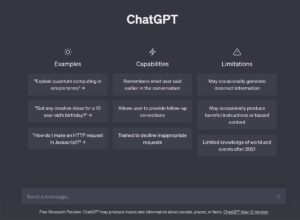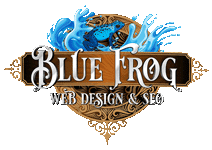
Pros And Cons of Using ChatGPT for Content Creation
It’s no exaggeration that ChatGPT has become a game-changer in the world of content creation. Its remarkable capabilities and widespread adoption have fueled its popularity to new heights. However, it’s not without its drawbacks or important considerations to remember. Indeed, thoroughly exploring the pros and cons of using ChatGPT for content creation is essential before embracing the hype. Whether you’re a blogger, marketer, or content strategist, due diligence is crucial for making informed decisions.
This blog post explores this matter, providing insights to help you navigate this exciting yet complex landscape. From time efficiency and cost-effectiveness to concerns about plagiarism and accuracy, we’ll shed light on the factors that should influence your decision to leverage this powerful tool.
So, let’s dive in.
Pros of Using ChatGPT for Content Creation
First, we should acknowledge that there are indeed ample benefits to this practice. It wouldn’t have caught on to this staggering degree if this weren’t the case. So, let’s start with the three main benefits it offers.
Improved Consistency and Overcoming Writer’s Blocks

ChatGPT
To start with a relatively lesser-explored perk, ChatGPT brings notable benefits in improved consistency and overcoming writer’s blocks.
On the former, ChatGPT can be trained on specific writing styles or brand guidelines, ensuring that the generated text aligns with the desired voice. This consistency is particularly valuable for businesses and organizations that maintain a cohesive and recognizable brand image. Tonal consistency is key for all businesses, for that matter, as WP Full Care advises webmasters to keep in mind.
ChatGPT is also a valuable tool for generating ideas and overcoming creative hurdles. For one, writers often encounter periods of writer’s block. In addition, especially when content is abundant and already available, writers may struggle to develop fresh concepts. ChatGPT can inspire and act as a creative catalyst, sparking new ideas and perspectives. By inputting a prompt or question, creators can receive a generated text that ignites their creativity and helps them overcome creative obstacles.
Time Efficiency and Cost-Effectiveness
One of the most famous pros of using ChatGPT for content creation is the remarkable time efficiency it offers. With ChatGPT, there is a substantial reduction in research and preparation time. Instead of spending hours gathering information and structuring content, creators can input their prompts and receive a generated text within seconds. This streamlined process allows for a more efficient workflow, enabling creators to focus on other important tasks like writing high-conversion copy.
In addition to time efficiency, ChatGPT also brings notable cost-effectiveness. Using ChatGPT can result in significant cost savings compared to hiring a human writer. Frankly, human writers often come with hefty price tags, especially for high-quality content, which smaller businesses often can’t afford. By utilizing ChatGPT, creators can access a cost-effective solution that generates content at a fraction of the cost.
Creation Speed
And finally, an obvious and highly valuable benefit of ChatGPT is the impressive creation speed it offers. Instead of spending hours or even days crafting and refining their work, creators can input their prompts and receive immediate text outputs. This accelerated process allows for a faster content production cycle, enabling creators to meet tight deadlines and respond quickly to time-sensitive demands.
In turn, this creates the additional perk of meeting tight deadlines. Whether it’s for a time-sensitive marketing campaign, a breaking news article, or an urgent blog post, ChatGPT’s quick response time ensures that creators can produce content promptly. The combination of rapid content generation and the ability to meet tight deadlines makes ChatGPT a valuable asset for content creators seeking efficiency and agility in their work.
Cons of Using ChatGPT for Content Creation
All that said, there are also drawbacks to using ChatGPT in this way. While often not deal-breakers, these drawbacks also deserve consideration and adjustment – and haven’t yet gotten as much attention as the perks above.
Plagiarism
First and foremost, while ChatGPT offers numerous benefits, it’s important to acknowledge the potential drawback of plagiarism. ChatGPT has been trained on a vast corpus of text from the internet, which means there is a possibility that the generated content may inadvertently resemble existing works. Therefore, creators must exercise caution to ensure their original content does not infringe upon intellectual property rights.
Furthermore, improper citation and attribution practices can contribute to plagiarism concerns. ChatGPT does not automatically provide citations or attribute the sources it generates content from. It thus becomes the creator’s responsibility to verify the information and properly credit the original sources. Failing to do so can sometimes lead to plagiarism allegations and even legal repercussions.
This is, however, not an impossible set of drawbacks. To mitigate the risk of plagiarism, creators must incorporate diligent fact-checking, use reliable sources, and implement proper citation and attribution practices when utilizing ChatGPT. Taking these precautions ensures that the content remains original, respects intellectual property rights, and upholds ethical standards in content creation.
Inaccuracies
Plagiarism aside, the cons of using ChatGPT for content creation include the possibility of inaccuracies in the generated content. ChatGPT relies on existing knowledge and patterns learned from its training data, which may not always guarantee accuracy. The model’s responses are based on the information it has been exposed to and may not be fact-checked or updated. Therefore, there is a risk of propagating false or outdated information if not carefully reviewed.
Needless to say, this drawback also deserves due diligence, as it can harm the user experience of your website. Creators need to take responsibility for reviewing and verifying the information provided by ChatGPT. They should fact-check the generated content, cross-reference it with reliable sources, and validate the accuracy of any claims or data before publishing. While ChatGPT can be a valuable resource, it should be treated as a starting point rather than the final authority on factual information.
Complacency and Reduced Ability to Produce Content Independently
And finally, a notable set of cons of this practice is the risk of complacency and reduced ability to produce content independently. Simply put, as creators become reliant on ChatGPT for generating the content, there is a possibility of developing a dependence on the tool for all their content creation needs. This overreliance on AI can lead to a diminished sense of personal expertise and creativity and a lack of unique perspectives in the content produced.
To counteract this drawback, creators must strike a balance between the use of ChatGPT and their skills and knowledge. While ChatGPT can provide valuable assistance and efficiency, it should not replace the creative abilities and expertise of the human creator. It is essential to exercise critical thinking, inject personal insights, and infuse creativity into the content produced with the help of ChatGPT.
Conclusion; Weighing the Pros And Cons of Using ChatGPT for Content Creation
In conclusion, the use of ChatGPT for content creation presents a mixed bag of pros and cons. Undeniably, ChatGPT offers unquestionable benefits, including time efficiency, cost-effectiveness, creation speed, improved consistency, and the ability to overcome writer’s blocks. These advantages have revolutionized content creation, providing creators with valuable resources and streamlining their workflows.
However, content creators need to be aware of the potential drawbacks – ones that the hype around the tool often obscures. Issues such as plagiarism, inaccuracies, and the risk of complacency leading to reduced independent content production should not be overlooked. In truth, they should be actively kept in mind and safeguarded against.
Ultimately, the key lies in using ChatGPT as a powerful tool, complementing one’s expertise and creativity rather than replacing them. By embracing a mindful and responsible approach to its use, content creators can harness the true potential of ChatGPT for content creation.
Need help with your marketing?
Let my team help you like we’ve helped lots of other businesses dominate their rankings and attract better-quality leads.



